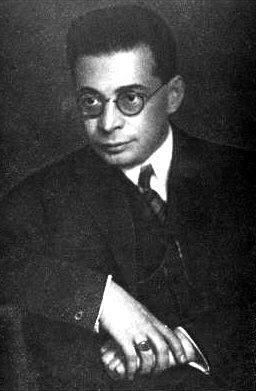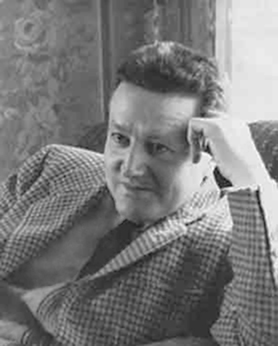Related Research Articles

Otto Rank was an Austrian psychoanalyst, writer, and philosopher. Born in Vienna, he was one of Sigmund Freud's closest colleagues for 20 years, a prolific writer on psychoanalytic themes, editor of the two leading analytic journals of the era, managing director of Freud's publishing house, and a creative theorist and therapist. In 1926, Rank left Vienna for Paris and, for the remainder of his life, led a successful career as a lecturer, writer, and therapist in France and the United States.

Adrian Monk, portrayed by Tony Shalhoub, is the title character and protagonist of the USA Network television series Monk. He is a renowned former homicide detective for the San Francisco Police Department. He has obsessive-compulsive disorder (OCD) and multiple phobias, all of which intensified after the murder of his wife Trudy, resulting in his suspension from the department. He works as a private police homicide consultant and undergoes therapy with the ultimate goal of overcoming his grief, taking control of his phobias and disorder, and being reinstated as a police detective.

White pride and white power are expressions primarily used by white separatist, white nationalist, fascist, neo-Nazi, and white supremacist organizations in order to signal racist or racialist viewpoints. It is also a slogan used by the prominent post-Ku Klux Klan group Stormfront and a term used to make racist/racialist viewpoints more palatable to the general public who may associate historical abuses with the terms white nationalist, neo-Nazi, and white supremacist.

William Herbert Sheldon, Jr. was an American psychologist, numismatist, and eugenicist. He created the field of somatotype and constitutional psychology that correlate body types with temperament, illustrated by his controversial Ivy League nude posture photos.
Terror management theory (TMT) is both a social and evolutionary psychology theory originally proposed by Jeff Greenberg, Sheldon Solomon, and Tom Pyszczynski and codified in their book The Worm at the Core: On the Role of Death in Life (2015). It proposes that a basic psychological conflict results from having a self-preservation instinct while realizing that death is inevitable and to some extent unpredictable. This conflict produces terror, which is managed through a combination of escapism and cultural beliefs that act to counter biological reality with more significant and enduring forms of meaning and value—-basically countering the personal insignificance represented by death with the significance provided by symbolic culture.
Psychological thriller is a genre combining the thriller and psychological fiction genres. It is commonly used to describe literature or films that deal with psychological narratives in a thriller or thrilling setting.
Sheldon Solomon is an American social psychologist. He is a professor of psychology at Skidmore College in Saratoga Springs, New York. Solomon is best known for developing terror management theory, along with Jeff Greenberg and Tom Pyszczynski. This theory is concerned with how humans deal with their own sense of mortality.
Neuroticism is a personality trait associated with negative emotions. It is one of the Big Five traits. Individuals with high scores on neuroticism are more likely than average to experience such feelings as anxiety, worry, fear, anger, frustration, envy, jealousy, pessimism, guilt, depressed mood, and loneliness. Such people are thought to respond worse to stressors and are more likely to interpret ordinary situations, such as minor frustrations, as appearing hopelessly difficult. Their behavioral responses may include procrastination, substance use, and other maladaptive behaviors, which may temporarily aid in relieving negative emotions and generating positive ones.

Irvin David Yalom is an American existential psychiatrist who is an emeritus professor of psychiatry at Stanford University, as well as author of both fiction and nonfiction.
Emotionally focused therapy and emotion-focused therapy (EFT) are related humanistic approaches to psychotherapy that aim to resolve emotional and relationship issues with individuals, couples, and families. These therapies combine experiential therapy techniques, including person-centered and Gestalt therapies, with systemic therapy and attachment theory. The central premise is that emotions influence cognition, motivate behavior, and are strongly linked to needs. The goals of treatment include transforming maladaptive behaviors, such as emotional avoidance, and developing awareness, acceptance, expression, and regulation of emotion and understanding of relationships. EFT is usually a short-term treatment.
Counterproductive norms are group norms that prevent a group, organization, or other collective entities from performing or accomplishing its originally stated function by working oppositely to how they were initially intended. Group norms are typically enforced to facilitate group survival, to make group member behaviour predictable, to help avoid embarrassing interpersonal interactions, or to clarify distinctive aspects of the group’s identity. Counterproductive norms exist despite the fact that they cause opposite outcomes of the intended prosocial functions.
Tom Pyszczynski is an American social psychologist. He is notable, together with Jeff Greenberg and Sheldon Solomon, for founding the field of Terror Management Theory (TMT). TMT is a theory that is based on the writings of Ernest Becker, along with other existential thinkers such as Søren Kierkegaard, Otto Rank, and Heidegger. At the heart of TMT is the notion that human beings have a unique capacity for self-awareness, which makes them realize that death is inevitable. This realization, which conflicts with people's instinctive need for self-preservation, gives rise to a potential for existential anxiety, or terror, that is greater than that in other animals. To manage this potential for terror, people have constructed cultural worldviews, which assure people of either a literal form of afterlife or a symbolic form of death transcendence. When people live up to the standards implied by their cultural worldviews, they attain a sense of positive self-esteem. Thus, TMT suggests that one major psychological function of self-esteem lies in protecting people against existential anxiety. TMT was explicitly formulated to be open to empirical testing. Indeed, since TMT was first conceived in the 1980s, the theory has inspired hundreds of experiments that were designed to test core ideas of TMT. For instance, in support of TMT, many experiments have shown that reminding people of their own mortality leads people to defend their cultural worldviews more vigorously. For instance, people who are briefly reminded of death are more dismissive of someone who criticizes their culture.

Mortality salience is the awareness that one's death is inevitable.
Self-esteem can be defined as how favorably individuals evaluate themselves. According to Leary, self-esteem is the relationship between one's real self and one's ideal self, feeding off of favorable behaviors. It refers to an individual's sense of their value or worth, or the extent to which a person values, approves of, appreciates, prizes, or likes themselves. Self-esteem is generally considered the evaluative component of the self-concept, a broader representation of the self that includes cognitive and behavioral aspects as well as evaluative or affective ones. There are several different proposals as to the functions of self-esteem. One proposal is that it satisfies the inherent need to feel good about oneself. Another is that it serves to minimize social rejection. Self-esteem is also known as a way for a person to remain dominant in relationships. Self-esteem is known to protect people from potential fear that arises from the prospect of death. Motivating individuals towards their goals, high self-esteem fosters effective coping, while low self-esteem tends to result in avoidance.
Social comparison bias is the tendency to have feelings of dislike and competitiveness with someone seen as physically, socially, or mentally better than oneself. Social comparison bias or social comparison theory is the idea that individuals determine their own worth based on how they compare to others. The theory was developed in 1954 by psychologist Leon Festinger. This can be compared to social comparison, which is believed to be central to achievement motivation, feelings of injustice, depression, jealousy, and people's willingness to remain in relationships or jobs. The basis of the theory is that people are believed to compete for the best outcome in relation to their peers. For example, one might make a comparison between the low-end department stores they go to frequently and the designer stores of their peers. Such comparisons may evoke feelings of resentment, anger, and envy with their peers. This bias revolves mostly around wealth and social status; it is unconscious and people who make these are largely unaware of them. In most cases, people try to compare themselves to those in their peer group or with whom they are similar.

Death anxiety is anxiety caused by thoughts of one's own death, and is also known as thanatophobia. Individuals affected by this kind of anxiety experience challenges and adversities in many aspects of their lives. Death anxiety is different from necrophobia, which refers to an irrational or disproportionate fear of dead bodies or of anything associated with death. Death anxiety has been found to affect people of differing demographic groups as well, such as men versus women, young versus old, etc. Different cultures can manifest aspects of death anxiety in differing degrees.

The Five-Year Engagement is a 2012 American romantic comedy film written, directed, and produced by Nicholas Stoller. Produced with Judd Apatow and Rodney Rothman, it is co-written by Jason Segel, who also stars in the film with Emily Blunt as a couple whose relationship becomes strained when their engagement is continually extended. The film was released in North America on April 27, 2012 and in the United Kingdom on June 22, 2012.
Anxiety buffer disruption theory (ABDT) is an application of terror management theory to explain an individual's reaction to a traumatic event, which leads to post traumatic stress disorder. Terror management theory posits that humans, unlike any other organism, are uniquely aware that death is the inevitable outcome of life. When thoughts of death are made salient, such as when a terrorist attack carries those thoughts into the level of consciousness, humans are subject to debilitating anxiety unless it can be "buffered." Humans respond to the anxiety and dread mortality salience produces by clinging to their cultural worldview, through self-esteem and also close personal relationships. Cultural worldviews, with their cultural norms, religious beliefs and moral values infuse life with meaning. They give life a feeling of normalcy and also a feeling of control. There is no way to definitely prove one's cultural worldview, there they are fragile human constructs and must be maintained. Clinging to a cultural worldview and self-esteem buffer the anxiety connected to thoughts of mortality. When thoughts of death are salient, humans are drawn to their cultural world view which "stipulates appropriate social requirements, and standards for valued conduct, while instilling one's life with meaning, order and permanence."

Solomon Christopher Thomas is an American professional football defensive tackle for the New York Jets of the National Football League (NFL). He played college football at Stanford and was drafted third overall by the San Francisco 49ers in the 2017 NFL draft.
The Scrooge effect is a psychological phenomenon that describes a noticeable behavioural change in individuals towards increased generosity and altruism following encounters with mortality or existential dread. It emphasizes that the realization of mortality motivates individuals to embrace cultural values and engage in activities that provide significance and transcendence beyond the concept of death. Corresponding to the terror management theory, the Scrooge effect proposes that existential apprehension can stimulate positive shifts in behavior. Individuals may prioritize acts of kindness and philanthropy as coping mechanisms to grapple with mortality and reaffirm their sense of purpose. Empirical studies suggest that personal adversities such as severe illness, financial adversity, or the bereavement of a loved one can instigate pro-social conduct, fostering sentiments of generosity and empathy. The Scrooge effect offers a conceptual framework within psychology to examine the determinants influencing altruistic behaviors and the underlying mechanisms driving transformative experiences.
References
- ↑ "Relationship Between Fear of Death and Political Preferences". Medical News Today. 26 October 2004. Archived from the original on 2009-01-05. Retrieved 2008-01-18.
- ↑ Sheldon Solomon, Jeff Greenberg, Tom Pyszczynski (26 May 2004). "Handbook of Experimental Existential Psychology". ISBN 9781593850401 . Retrieved 2008-01-18.
{{cite news}}: CS1 maint: multiple names: authors list (link) - ↑ Shankar Vedantam (December 24, 2007). "Reminders of Mortality Bring Out the Charitable Side". Washington Post . pp. A03. Retrieved 2008-01-18.
- ↑ "An INTERVIEW with Dr. Jeff Greenberg". Essential Science Indicators. December 2005. Retrieved 2008-01-18.